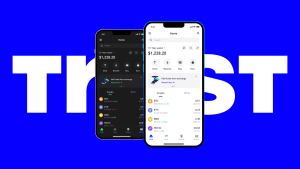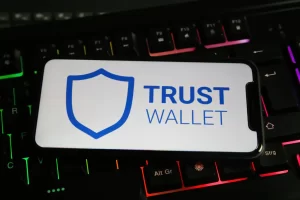Is Trust Wallet any good?
Trust Wallet is a popular and secure crypto wallet. It supports many cryptocurrencies, offers full control of private keys, and has a simple interface. It’s good for beginners and advanced users, but like all wallets, security depends on how you manage your device and recovery phrases.
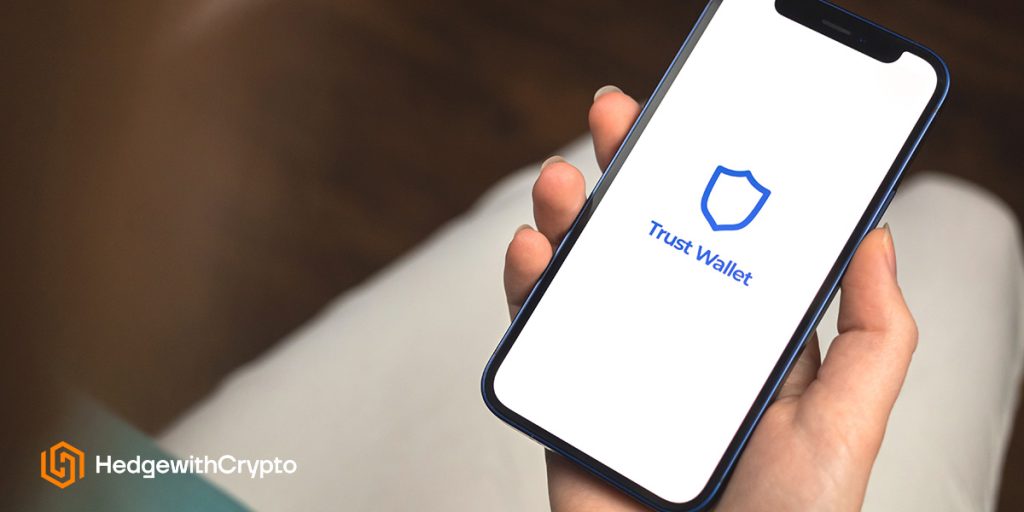
Trust Wallet Features and Benefits
Key Advantages of Using Trust Wallet
-
User Control of Private Keys: Trust Wallet allows users complete control over their private keys, which are stored on the user’s device instead of on a remote server. This feature enhances the security of the wallet, as only the user has access to their funds.
-
User-Friendly Interface: Designed to be accessible even for those new to cryptocurrencies, Trust Wallet’s interface is clean and intuitive. It simplifies the process of sending, receiving, and managing cryptocurrency assets.
-
Multi-Currency Support: Trust Wallet supports a wide range of cryptocurrencies and tokens, making it a versatile choice for users who engage in diverse cryptocurrency transactions and investments.
Supported Cryptocurrencies and Blockchain Networks
-
Wide Range of Supported Cryptocurrencies: Trust Wallet supports more than 160,000 assets, including popular cryptocurrencies like Bitcoin, Ethereum, and Binance Coin, as well as a vast array of ERC-20 and BEP-2 tokens.
-
Integration with Multiple Blockchains: The wallet is compatible with several blockchain networks, which allows for seamless management of different cryptocurrencies under one roof. This includes Ethereum, Binance Smart Chain, and Tron, among others.
-
Support for Non-Fungible Tokens (NFTs): Trust Wallet also enables users to store and manage NFTs directly within the wallet, catering to the growing interest in digital collectibles across various blockchain networks.
Trust Wallet Security Overview
How Trust Wallet Protects Your Assets
-
Non-Custodial Wallet Structure: Trust Wallet is a non-custodial wallet, meaning users have full ownership of their private keys. This ensures that only the user has access to their funds, reducing the risk of centralized hacks or breaches.
-
Local Storage of Private Keys: All private keys and sensitive data are stored locally on the user’s device. Trust Wallet does not collect or store any personal information, ensuring that your crypto assets remain solely under your control.
-
Open-Source Code Transparency: Trust Wallet’s open-source nature allows the community and security experts to review the code regularly. This transparency helps identify and fix vulnerabilities quickly, increasing trust in the wallet’s security measures.
Tips to Enhance Your Trust Wallet Security
-
Secure Your Recovery Phrase: Always write down your 12-word recovery phrase and store it offline in a safe place. Never share it online or store it digitally, as anyone with access to this phrase can control your wallet.
-
Enable Additional Device Security: Use device-level protections such as biometric authentication, strong passwords, or PIN codes. This adds an extra layer of security if your phone or tablet is ever lost or stolen.
-
Be Aware of Phishing Scams: Always verify links and avoid clicking on suspicious messages or emails. Trust Wallet will never ask for your recovery phrase or private keys, so staying vigilant against scams is crucial for protecting your assets.
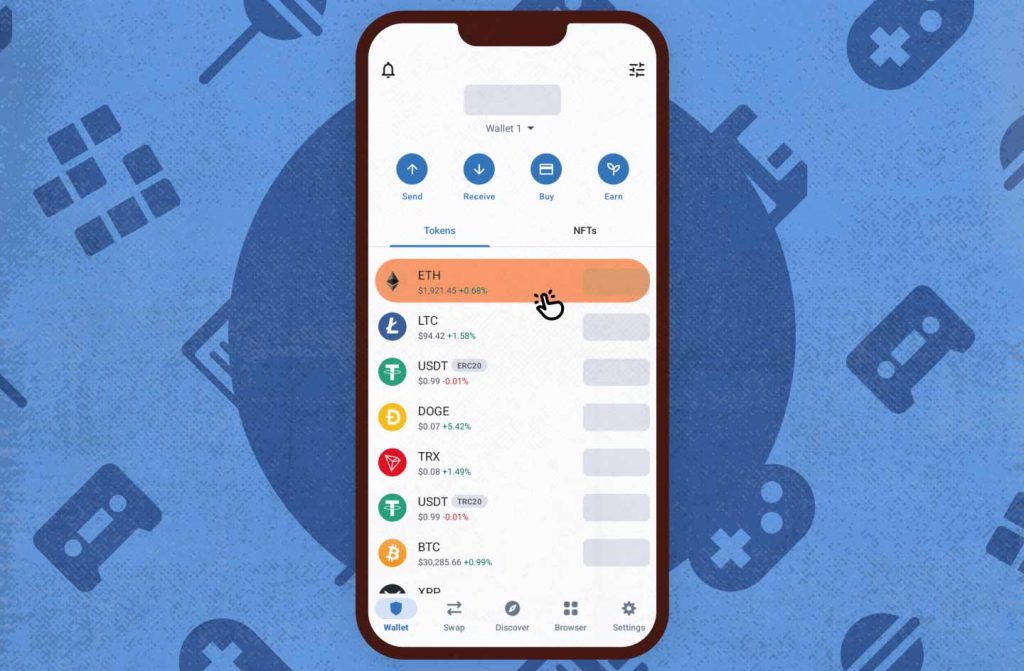
How to Use Trust Wallet for Beginners
Step-by-Step Guide to Setting Up Trust Wallet
-
Download and Install the App: Trust Wallet is available on both iOS and Android. Visit the official App Store or Google Play Store, search for “Trust Wallet,” and download the app to your device to ensure you’re using the legitimate version.
-
Create a New Wallet: Open the app and select “Create a New Wallet.” You will be prompted to accept the terms of service. After that, the app will generate a 12-word recovery phrase, which is crucial for accessing your wallet in case you lose your device.
-
Backup Your Recovery Phrase: Write down the 12-word recovery phrase on paper and store it in a secure location. Confirm the phrase within the app to complete the setup. This step is essential because losing this phrase means losing access to your crypto assets.
How to Send and Receive Crypto with Trust Wallet
-
Receiving Cryptocurrency: To receive crypto, open Trust Wallet, select the cryptocurrency you want to receive, and tap on “Receive.” A QR code and wallet address will be displayed, which you can share with the sender.
-
Sending Cryptocurrency: To send crypto, select the token you wish to transfer and tap “Send.” Enter the recipient’s wallet address, the amount, and confirm the transaction. Always double-check the address to avoid errors.
-
Check Transaction History: After sending or receiving funds, you can monitor your transaction status within the app. Each transaction includes details such as confirmation status, amount, and receiving/sending addresses for easy tracking.

Trust Wallet vs Other Crypto Wallets
Comparison Between Trust Wallet and MetaMask
-
Blockchain and Token Support: Trust Wallet supports a wider range of blockchains, including Binance Smart Chain, Tron, and more, while MetaMask is primarily focused on Ethereum and EVM-compatible networks. This makes Trust Wallet more versatile for multi-chain users.
-
Mobile vs Browser-Based: Trust Wallet is a mobile-only application, ideal for users who prefer managing crypto on smartphones. MetaMask, on the other hand, is mainly a browser extension, though it also offers a mobile version, making it popular among desktop users interacting with decentralized apps (dApps).
-
Built-in Features: Trust Wallet includes a built-in decentralized exchange (DEX) and staking options directly within the app. MetaMask relies more on external integrations for swaps and staking, requiring users to connect to third-party platforms for similar services.
Pros and Cons of Trust Wallet Compared to Hardware Wallets
-
Accessibility and Convenience: Trust Wallet is free and easy to use, providing instant access to crypto assets via mobile devices. Hardware wallets, like Ledger or Trezor, offer superior security but require physical access, making them less convenient for frequent transactions.
-
Security Levels: Hardware wallets store private keys offline, offering the highest level of protection against hacks and malware. Trust Wallet, while secure for a hot wallet, remains connected to the internet, which carries inherent risks despite strong encryption.
-
Cost Consideration: Trust Wallet is completely free to download and use, whereas hardware wallets involve an upfront purchase cost. For beginners or casual users, Trust Wallet is a budget-friendly option, while hardware wallets are better suited for storing large amounts of crypto long-term.
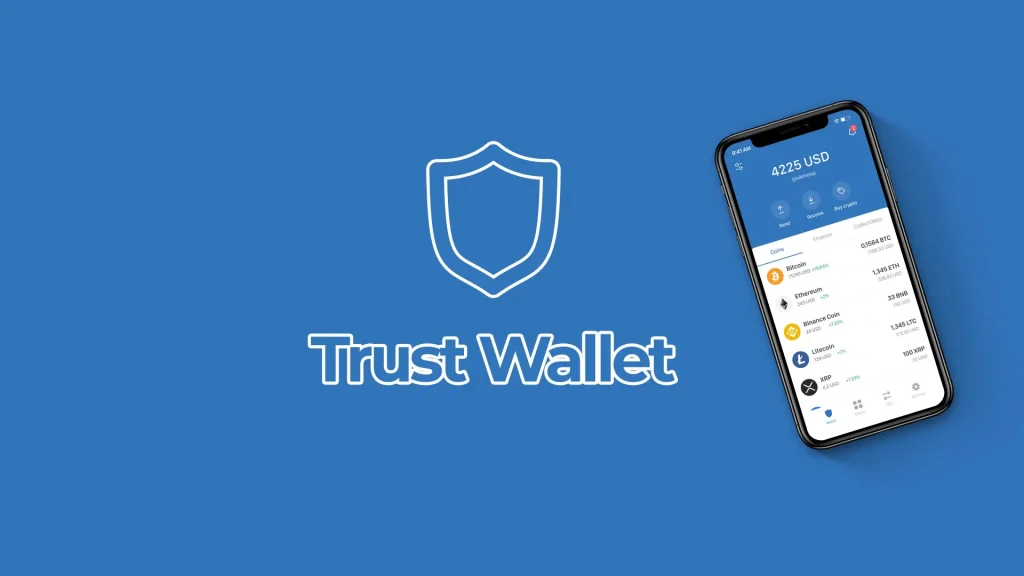
Is Trust Wallet Safe for Storing Cryptocurrency
Trust Wallet’s Approach to Private Key Management
-
Full User Ownership: Trust Wallet operates as a non-custodial wallet, meaning users have complete control over their private keys. The app never stores or accesses these keys, ensuring that only the user can manage their crypto assets.
-
Local Device Storage: Private keys and recovery phrases are stored locally on the user’s device, not on any centralized servers. This reduces exposure to large-scale hacks that typically target centralized platforms.
-
Recovery Phrase Security: During wallet setup, Trust Wallet provides a 12-word recovery phrase. This phrase is the only backup to restore wallet access, emphasizing the importance of securely storing it offline and never sharing it.
Common Risks and How to Avoid Them
-
Phishing Attacks: One of the biggest risks is phishing scams where attackers impersonate Trust Wallet to steal recovery phrases. Always verify official sources and remember that Trust Wallet will never ask for your private information.
-
Malware and Device Theft: Since Trust Wallet is a hot wallet, compromised devices can expose your assets. Protect your phone with strong passwords, biometric locks, and avoid installing untrusted apps that may carry malware.
-
Loss of Recovery Phrase: If you lose your 12-word recovery phrase, you permanently lose access to your funds. To avoid this, write down the phrase and store it securely in multiple physical locations, away from digital threats.

